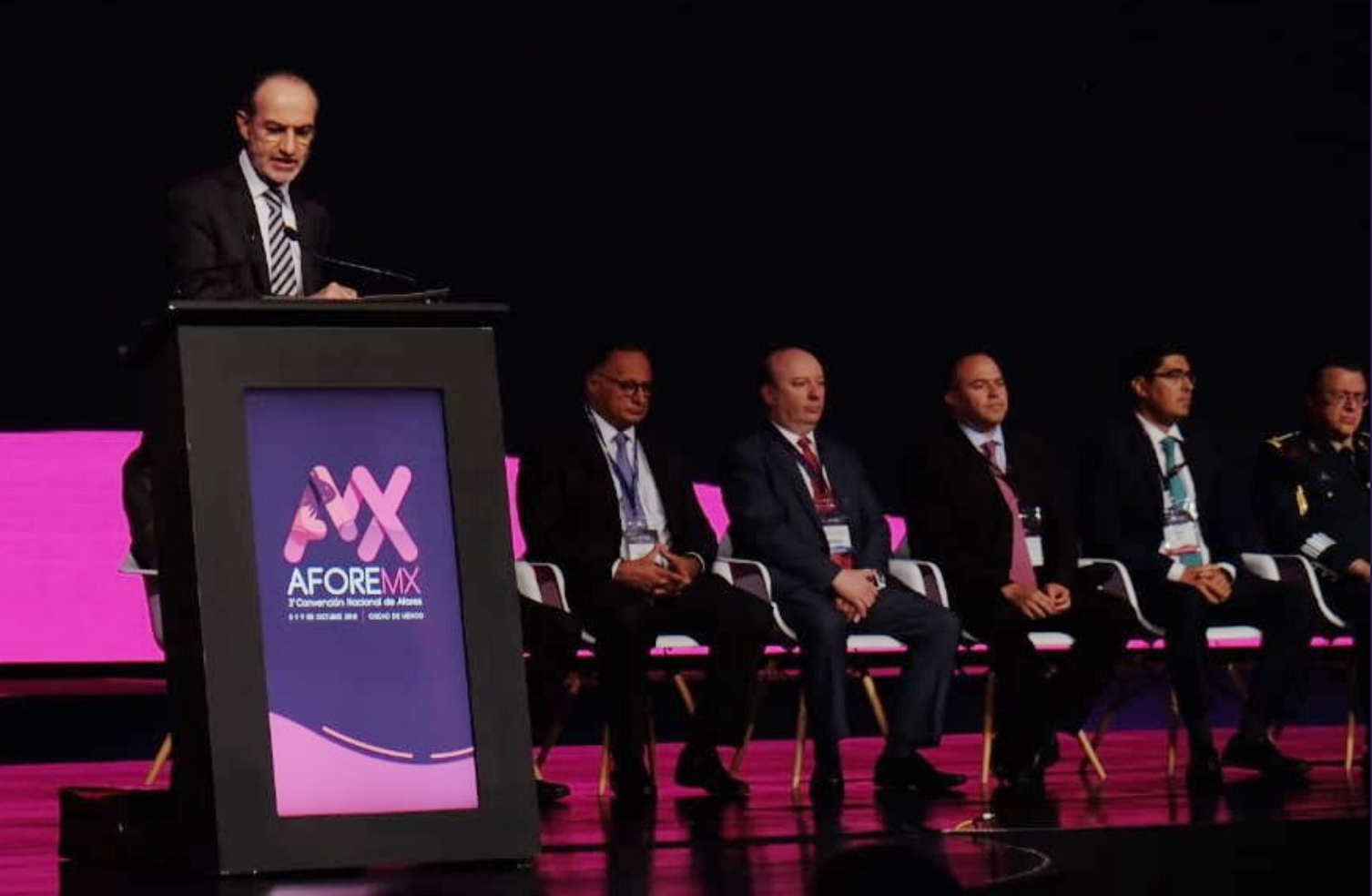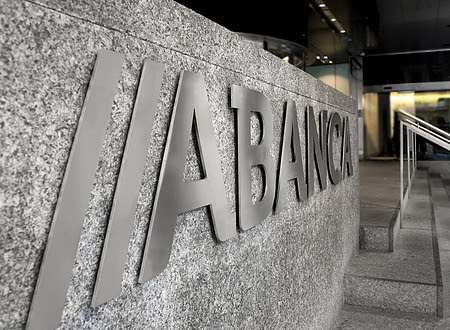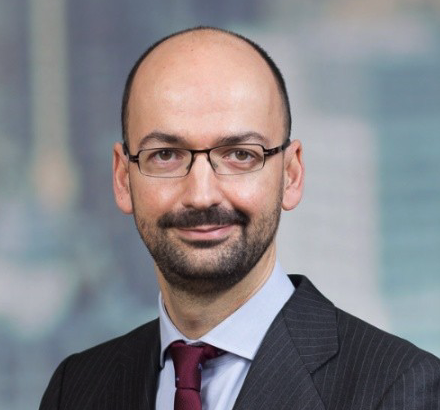Last September 20th, Janus Henderson Investors celebrated their Madrid Knowledge Exchange event at the Villa Magna Hotel, bringing together 129 investment professionals from Spain, Chile, Argentina, Uruguay and Miami. Ignacio de la Maza, Head of Continental Europe and Latin America, together with Roger Thompson, Chief Financial Officer, welcomed the attendees.
This year’s theme was “Disruption in Motion” or how to protect client’s investments and create chances for profiting in a world in motion in which changes are a constant. According to Ignacio de la Maza, investment managers at Janus Henderson Investors spend a lot of time assessing how changes and disruption may affect investments, asking themselves what changes could threaten companies’ profitability, what new competitors could emerge, and to what extent could their earnings be resilient to changes.
“Equity and fixed income managers have to worry about these previous questions. Many of the facts that affect equity markets have also implications for fixed income investors. A company needs to obtain any earnings to pay dividends, but it also needs to generate cash flows to pay their creditors. Changes at the regulatory level or a switch in monetary policy can also lead to big changes, in both the prices of bonds or the prospects for investors”, commented de la Maza.
“At Janus Henderson we believe technology and disruption go hand in hand, as Alison Porter, Portfolio Manager of our Global Technology strategy, is going to explain technological transformation and changes in product and services are redefining our economy. We all are familiar with Amazon and how they have transformed traditional retail sales. But behind the scene, their capabilities in cloud computing and artificial intelligence are reorganizing supply chain, labor market and transforming all places. Amazon has a market capital around 960 billion US dollars, its closest rival in cloud computing services is Microsoft, which is valued at 870 billion US dollar. Just think about it, this two companies have a combined market capitalization higher than the GDP of Spain”, he added.
“Among the line-up brought to the event, Hamish Chamberlayne, Portfolio Manager of our Global Equity ESG strategy, recognizes two major generational investment trends, both closely aligned with sustainability, one being the energy transition, explained as the conversion to a low-carbon economy, also called the digitalization of energy, and the second one being the often known as the fourth industrial revolution, where the world becomes a computer through internet of things and the digitalization of every process. There are also two megatrends are transforming the world in which we live in, the demographic growth, as population is increasing, and people are living longer lives, and climate change, both creating constrains in the availability of resources. In this sense, disruption can be a powerful tool for good, as it is disruptive to become more efficient, to save money to customers and to pollute less, improving a company brand perception and gaining customer base. As Hamish will explain, sustainable investing and making money are not mutually exclusive”.
The event also counted with the participation a guest speaker, Malcom Moore, Editor at the Financial Times, who talked about the scale of political disruption in recent years around the world.
“Disruption is not just happening at a localized level but reaching every corner of society. Political parties that have been in the system for decades are being beaten by new players. Populism is evident in both the left and the right parties, and we have seen this trend manifesting itself in more and more mercantilism economic policies. After several decades of globalization, we may have to get use to a more protectionist society. This may have major consequences for the supply chain, the labor market and for the profitability of international companies”.
“The best example of political disruption is, of course, Donald Trump, the President of USA, whose tweets may have seemed controversial, rude, or even amusing at times, but conveyed a power that has been multiplied by a thousand a hyperconnected world. A 280-character remark can now start a trade war, swift bond yields, and lift or sink a currency”, explained de la Maza.
The world is clearly changing, as an investment management firm, Janus Henderson has to predict the direction of changes and evolve with those changes. In the last decade, Janus Henderson has gone through acquisitions and mergers and expanded the range of products offered to investors. As an example, de la Maza mentioned that the firm now offers direct access to countries such as China, that are engaged in an economic growth revolution, where an economic expansion of 6% seems slow.
“Disruption also means that there will be losers and winners, several of our portfolio managers here today offer strategies that can take long and short approach to investing, which means investors can benefit from stock price moves in either direction. I am sure that today’s session will let you hear at first hand how investment experts are dealing with disruption and how you and your clients can embrace this disruption as a potential opportunity for investment”, concluded de la Maza, handing the floor over Roger Thompson.
About the merger
According to Thompson, the firm has been very busy internally since Janus Capital and Henderson Global Investors completed their merge in May 2017. “Over the last sixteen months, we have been working on bringing together the two business, making a great progress in their integration. The organization that we have put together has now 370 billion US dollars in assets under management and we currently employ around 2.000 people in 28 offices around the world. Our asset mix, which is similar to the asset mix of our industry, has about 50% of the assets in the US, about 33% in Europe and LatAm, and around 16% in Asia. Therefore, we believe we are well positioned to match the client needs around the world”, he stated.
“Why did we merge? First, we merged to be better positioned to serve clients around the world. We now provide a broader choice in investment propositions, some that you could see in the mix of portfolio managers and teams today, at the Madrid Knowledge Exchange event. In addition, there have been some structural changes, clients want fewer but deeper relationships with managers, and there have also been regulatory changes going on, making more difficult and more expensive to operate as a global manager. But we believe we are going to have a significant footprint around the world.
In the five largest markets, the US, the UK, Europe and LatAm, Japan and Australia, we have a real presence. We have over 200 investment professionals and around 330 distribution professionals”, he continued.
“I have talked a little bit about talent, I am delighted that we have been able to attract high quality talent through the merger in all areas. Paul Brito, who joined us in early September, is definitively the newest member of the team, a genuine Janus Henderson employee. But if you look at some others of our recent hires, -such as Dan Siluk, Global Head of Fixed Income, or Georgina Fogo, current Chief Risk Officer at Janus Henderson and former Global Head of Compliance Officer at BlackRock-, it is quite possible that all the talent hired by Janus Henderson would not have been able to join Janus Capital or Henderson Global.
Internally, we are working to complete our integration to unleash the power of the full potential that we have put together with Janus Henderson. We need to continue to evolve, as the market place, the clients and the financial intermediaries do evolve”, concluded Thompson.








